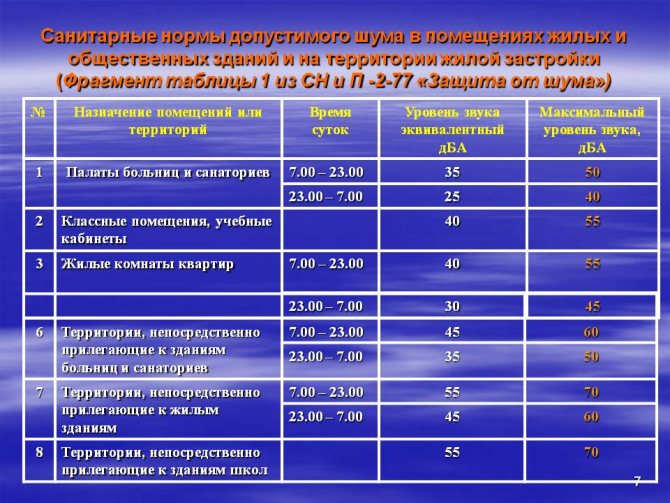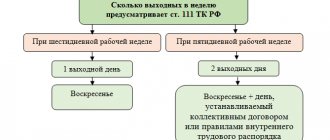Timely and adequate sleep is an essential component of human health. Living in an urban environment, and even in an apartment building, does not always provide such an opportunity. Some neighbors believe that their business is the most important and the needs of other residents may not be taken into account when planning.
Deputies have determined when it is forbidden to make noise in an apartment building; Under the federal law on silence, similar regional regulations were drawn up. In accordance with the document, the concept of “noise in an apartment” includes:
- work during which the approved level is exceeded: repairs, loading and unloading activities;
- loud household appliances - televisions, stereos, tape recorders;
- pyrotechnics (exceptional circumstances - New Year);
- other noises - musical instruments, loud singing, feasting, dancing, shouting, whistling and others.
The law establishes night and daytime hours of silence, including on weekends and holidays. There are some exceptions: noise can be made depending on the time of day, if we are talking about carrying out restoration work after an emergency or natural disaster. Also, the noise level does not apply to events of cultural significance and official holidays.
Legal basis of the silence law
Generally accepted norms regulating the neighborhood in an apartment building are enshrined in the Constitution of the Russian Federation, the Housing Code and other legislative acts. The documents also contain information about the rules for using your residential square meters, taking into account the interests and rights of residents of nearby apartments.
In the Russian Federation, Federal Law No. 52-FZ “On the sanitary and epidemiological welfare of the population,” which defines the time of silence, was adopted on March 30, 1999. The document has undergone several changes, the meaning of most of which boils down to the establishment of new periods of rest.
Owners of residential square meters in apartment buildings must maintain a volume of no more than 30 dB from 21-00 to 8-00 on weekdays and from 22-00 to 10-00 on weekends and holidays. The deputies considered the New Year to be an exceptional case, so they officially allowed people to make noise all night.
A number of standards apply to repair work. Low noise levels must be ensured at specified times. Ignoring the requirement may result in complaints and fines.
Silence law
Not all citizens are familiar with the regulation on silence. The problem is very acute in new buildings: someone previously bought an apartment, carried out renovation work and is living, while others are just about to equip their family nest.
Unpleasant moments are often associated with special events: birthdays or weddings.
When can noisy repair work be carried out?
The Federal Law “On the Sanitary and Epidemiological Welfare of the Population” dated March 30, 1999 No. 52-FZ, common to all regions of Russia, requires compliance with:
- Sanitary standards SN 2.2.4/2.1.8.562-96 “Noise in workplaces, in residential and public buildings and in residential areas”;
- SanPiN 2.1.2.2645-10 “Sanitary and epidemiological requirements for living conditions in residential buildings and premises.”
Both documents contain requirements for the maximum permissible noise level in our apartments and houses. In living rooms of apartments during the daytime the noise level is allowed up to 55 decibels. At night, from 11 p.m. to 7 a.m., noise levels of no more than 45 decibels are allowed.
Examples: during the day on a busy street the noise can reach 75 decibels, the noise when using a jackhammer can reach 120 decibels.
From this it is clear that at night you definitely should not break walls, work with a hammer drill or hammer nails. What about during the day? After all, we all have to repair our homes from time to time.
There is no general law for the entire country on silence or on the permissible time for noisy repair work. But each region has the right to adopt its own additional regulations on this issue. Which is exactly what is being done.
Laws on silence in the regions of Russia (as of December 2017) are presented in infographics on the information and legal portal GARANT.RU. You can look at the names of legislative acts in force in your region. However, keep in mind that these documents may be updated, changed, or replaced by others; please check their relevance.
Here we will consider, as an example, the laws of the city of Moscow, the Moscow and Vladimir regions, which protect residents from noisy repairs.
How much noise can you make on weekdays and weekends?
The main parameter of the law on silence is time. Depending on the region, the value may differ. Residents of the capital should not make noise from 23-00 to 7-00.
Carrying out work related to the repair or redevelopment of housing has always been given a separate role. Citizens planning to move to a high-rise building must calculate their strength, since the duration of the noisy part of the renovation cannot exceed 3 months. You can perform it from 9-00 to 19-00, but with a mandatory break from 13-00 to 15-00. Time is very important for families with children - naps.
How to protect yourself from conflicts
- read the silence law in force in your locality. If you cannot find the latest edition, contact a local lawyer who will explain your rights and responsibilities when carrying out weekend repairs in an apartment building;
- try to plan noisy work so that between 19:00 and 9:00 you can do quiet work or rest;
- Don't forget about quiet time! In most regions it remains unchanged: from 13:00 to 15:00. Quiet hour is not only a joy for your neighbors, but also your opportunity to take a break;
- It’s better to prepare for repairs in advance: draw up a plan, set realistic deadlines for noisy and quiet work, so that you can appeal to it if your neighbors have questions;
- Notifying them about upcoming repairs will help increase the loyalty of neighbors. Check out all your closest neighbors in advance. Let them know at what time you plan to make noise and how often. Check details. In this case, the neighbors most likely will not object and will tolerate a few days off. You can hang a notice in the entrance in a visible place with a brief schedule of noisy work, thanks for your patience, or an apology for the inconvenience caused.
Important! The height of tact is not just to warn, but to coordinate your schedule of noisy work on weekends with your neighbors and collect their signatures on a written version of the document. This may come in handy if a neighbor suddenly forgets that he was notified and goes to the local police officer.
When can you renovate your apartment?
The current regulatory framework does not allow apartment owners in apartment buildings to carry out repairs or remodeling on weekends and holidays. The exception is measures aimed at ensuring the safety of the population. Some regions have enshrined in their regulations the possibility of carrying out construction on Saturdays, officially declared working days.
Before you take up a drill or hammer drill, you should carefully study the law on silence. You can also notify your neighbors and apologize for the inconvenience (cultural communication helps reduce conflict situations). In almost all areas, you can work loudly with construction tools from 9 a.m. to 7 p.m., with a mandatory break for “quiet hour.” There are regions that have moved the late mark to 22 hours.
The rules of the silence law also apply to the removal of construction waste. You can start no earlier than 8 a.m. and finish before 10 p.m. The continuity of repair work should not exceed 6 hours.
Is it possible to renovate an apartment on Saturday?
Each of us sometimes faces the need for small household repairs in the apartment: rehanging paintings, covering the balcony, re-laying the floors, replacing plumbing, and so on. At the same time, we are not talking about global redevelopment, but only about improving the comfort or aesthetics of housing. But what if you work all week and only have time for repairs on the weekend? Is it possible to use a drill, other “loud” tools, knock and move furniture when the rest of your neighbors are taking a well-deserved rest and may have a very negative attitude towards noisy work in your apartment?
Let's look into this issue.
First, let's determine the list of works that relate to the redevelopment of the apartment. * It is impossible to carry out many of these works without special approval from the executive committee, not only on weekends, but also on weekdays. So, the redevelopment work in the apartment includes:
replacement or relocation of gas supply, central heating, waste disposal, gas removal systems;
device of hydro-, steam-, heat- and sound insulation;
changes in supporting structures;
changing the area, number of living rooms and utility rooms in the apartment by dismantling existing and (or) installing new partitions (the law generally prohibits converting loggias into a heated room);
changing the area and number of rooms in isolated non-residential premises due to dismantling existing and (or) installing new partitions;
device, increasing openings in non-load-bearing walls and partitions.
All reconstruction and redevelopment work that creates noise or vibration on weekends (Saturday and Sunday), as well as holidays, is prohibited by law . On weekdays, it is also forbidden to start such work before 9 o’clock and finish it later than 19. If you break these rules, neighbors have the right to complain and you will be fined.
Other work is not considered redevelopment or refurbishment , which means: insulating or sheathing walls in apartments and loggias, installing suspended ceilings, changing floor coverings, plumbing fixtures, doors in rooms, etc. can be done on Saturday, Sunday, and on holidays, but on the condition that the Rules for the Use of Residential Premises ** are observed, stating that in the period from 23 to 7 o’clock no actions should be taken that create vibration and noise (including performing household (repair) work, carrying out manual loading and unloading work , sudden closing of doors, etc. actions).
Of course, in addition to complying with legal regulations, you also need to be guided by common sense - it’s unlikely that your neighbors will be happy with a 10-hour drill or constant knocking and noise every weekend.
A COMMENT
Oleg Bandyk, lawyer:
— However, citizens are obliged to comply with the sanitary, epidemiological and technical requirements established for residence, fire safety rules, the requirements of these Rules and other requirements established by law (clause 7.2 of the Rules).
Permissible and maximum sound levels in residential premises of a residential building must comply with Sanitary Standards (clause 37 of the Sanitary Standards, approved by Resolution of the Ministry of Health dated August 20, 2015 N 95). In this case, the permissible noise level is a noise level that does not cause significant concern in humans and does not cause significant changes in the indicators of the functional state of systems and analyzers that are sensitive to noise (paragraph 2, part 1, clause 4 of the Sanitary norms, rules and hygienic standards approved by the resolution Ministry of Health dated November 16, 2011 N 115).
Thus, if the use of a tool (perforator) at any time creates a noise level that exceeds sanitary standards, then this is a violation of the Rules for the Use of Residential Premises and may entail administrative liability under Art. 21.16 of the Code of the Republic of Belarus on Administrative Offences.
How can you still make repairs and not quarrel with those who live nearby?
Based solely on the experience of those who have done renovations in an apartment, we can offer several tips that, I think, will be very useful for maintaining good neighborly relations.
Firstly, you need to warn your neighbors that you are planning to carry out repairs this coming weekend and make a little noise, asking them to be lenient about it. The main rule here is politeness. The position “I have the right and that’s all!” unproductive - you still have to live here. By the way, in some owners' associations they enter into a kind of agreement with all residents, in which they undertake, if necessary, to carry out work at a time convenient for their neighbors.
Secondly, during repairs it is worth protecting both yourself and your neighbors from various kinds of troubles: for example, leaks (which is possible when changing plumbing fixtures and pipes), pipe blockages (if you wash tools in the sink that are stained with plaster, cement and other construction materials). mixtures). In addition, you need to take care of removing garbage, which accumulates in huge quantities after large-scale repairs. Containers in courtyards are intended exclusively for household waste, and if you fill them with the remains of old plumbing fixtures or pieces of plaster, conflicts with neighbors cannot be avoided.
Thirdly, if you do not do the repairs yourself, but resort to the help of other workers, ask the construction crew to carry out noisy work intermittently; perhaps the neighbor’s children or old people need to sleep during the day. Explain to employees that if a conflict situation arises with neighbors, they should stop working and not enter into conflict, since it is you who are interested in friendly relations with neighbors and only you can act as an authority in resolving the conflict. In addition, it will be necessary to resolve the issue of cleaning, since it is unlikely that during a large-scale renovation it will be clean not only in the apartment, but also in the entrance.
The main thing you need to understand is that renovation is a contagious phenomenon, and sooner or later your neighbors may also start it, so imagine how you will feel in such a situation.
Legislation
* Resolution of the Council of Ministers of the Republic of Belarus dated May 16, 2013 No. 384 “On some issues of reconstruction and redevelopment, installation of individual antennas and other structures on the roofs and facades of multi-apartment residential buildings, as well as reconstruction of residential buildings.”
** “Rules for the use of residential premises, maintenance of residential and auxiliary premises” were approved by Resolution of the Council of Ministers of the Republic of Belarus dated May 21, 2013 No. 399.
Community literacy portal
11 Nov 2016
ADD A COMMENT
Comments +15 Alina 12/23/2018 00:29 Hello.
I do not agree with the lawyer's comment. According to the Sanitary norms, rules and hygienic standards “Noise in workplaces, in vehicles, in residential and public buildings and in residential areas”, approved by the Resolution of the Ministry of Health of the Republic of Belarus dated November 16, 2011 No. 115 Clause 2. Sanitary requirements rules do not apply to: 2.3.
noise from sound-reproducing and sound-amplifying devices; 2.4. noise in residential areas caused by: human activity (playing musical instruments, using pyrotechnics, loud speech and singing, performing household (repair) work, carrying out manual loading and unloading operations, abruptly closing doors, keeping pets, etc.). Based on the above, I conclude that it is impossible to bring to administrative liability under Part 1 of Article 21.16 of the Code of Administrative Offenses of the Republic of Belarus for using a hammer drill at any time of the day, since sanitary rules do not apply to the noise of repair work. If you follow the opinion of a lawyer, then you can be held accountable for a hole in the wall made with a hammer drill during the day, because... The noise of the hammer drill is approximately 100 dBA, and the maximum noise level in the apartment from 7 to 23 according to the standards is 55 dBA. If I'm wrong, please clarify why. Thank you. +9 Gennady 01/18/2019 21:37 Is it allowed to install laminate flooring on Saturday?
-25 Elena 02/02/2019 14:34 I also don’t agree with the above, if hired workers are doing the repairs (finishing), then why should I take a break from work when someone needs to sleep? i.e. the neighbors need to give in, and thereby injure themselves. But the neighbors can’t tolerate temporary noise, understanding me that I need to finish the repairs?
+18 Koptur Yulia 11/25/2019 09:42 Children cannot tolerate it. And you, as a normal neighbor, should take this into account!
+1 Pavel 02/09/2019 21:56 The references to the law indicate that repairs cannot be carried out on weekends and holidays. There is nothing written about Saturday, and nowhere in the law does it say that Saturday is a general day off or a holiday. Based on this, it turns out that on Saturday you can drill and chisel. Or am I wrong?
+3 Vera 04/14/2019 22:34 I quote Pavel:
The references to the law indicate that repairs cannot be carried out on weekends and holidays. There is nothing written about Saturday, and nowhere in the law does it say that Saturday is a general day off or a holiday. Based on this, it turns out that on Saturday you can drill and chisel. Or am I wrong?
So I’m wondering whether or not repair work can be carried out on Saturday from 9.00-19.00?
+13 Admin 04/15/2019 10:45 It’s possible. Art. 136 of the Labor Code of the Republic of Belarus establishes that the general day off is Sunday.
-9 Dollie 12/06/2019 08:11 Nothing can be done about it.
Update list of comments
Acceptable noise level
Studying the noise level values helps to better understand the law and the concept of silence:
- wall clock ticking – 30 dB;
- calm conversation – 40-45 dB;
- sound of a working vacuum cleaner – 75 dB;
- drill – 95 dB;
- baby crying - 90 dB.
For residents of the capital, the noise limit during the daytime is 55 dB. A deviation of 5 dB is allowed, and if the territory is adjacent to roads or railways, 10 dB. At night, the noise level should not be higher than 45 dB. The following noises are illegal: singing, playing musical instruments, arguing in a raised voice, rearranging furniture, repeatedly activating a car alarm.
How to react to the cry of a small child or the barking of a dog? The issue is ambiguous and sensitive. Daily prolonged crying accompanied by adult inaction should be reported to social services. You need to talk to the owner about unbearable dog barking. Maybe the animal is bored or didn’t get enough water.
Important: the time periods specified in the law on silence apply not only to living space, but also to the children's (sports) playground and the local area. Making noise is prohibited in medical, educational and rehabilitation institutions. Hotels, cafeterias and other places of leisure and recreation located near residential areas must also comply with the established regime.
Troubles with neighbors in the stairwell can be avoided by installing a good soundproofing system. The condition does not guarantee complete silence, but it conceals the majority of sounds. In other cases, you need to adhere to the established rules - both inside the apartment and outside it.

Federal Law on maintaining silence in an apartment building in 2019-2020: official text
For the first time, State Duma deputies were faced with the need to adopt Federal Law 52 in 1999.
The new bill has determined the time when it is forbidden to make noise in apartments. The official text was changed several times, establishing new periods of silence. Today, the law requires residents of apartment buildings to reduce the volume level in their premises to 30 dB between 21:00 and 8:00 on weekdays. Silence on weekends and holidays should be ensured from 22.00 to 10.00. Parliamentarians made an exception for New Year's Eve, when noise is officially allowed.
Certain rules have been established for carrying out repair work. According to the law on silence, residents of apartment buildings are obliged to ensure a low level of noise, regardless of the reasons for which it is produced. Otherwise, other residents have the right to complain about violators, and they will have to pay fines for disturbing the silence.
What to do if neighbors violate the law on silence
Observance of periods of silence and times of noise works or other activities is a mandatory requirement for all citizens. Violation may result in a warning or administrative fine. You can solve the problem in different ways:
- You need to talk to noisy neighbors. Many will understand the request, because no one wants their behavior to be discussed at home. If the noise is associated with the apartment located above, then a common cause of noise is children left without parental supervision. You can solve the problem by talking to an adult.
- You should respond to suspiciously loud and angry sounds coming from a neighboring living space by calling the police, as the cause may be illegal actions. A timely call can even save a person from violence.
- Neighbors who make noise regularly and do not understand either peaceful conversations or complaints to the police should write an official complaint addressed to the local police officer. A law enforcement officer can bring them to administrative responsibility.
- Sounds exceeding those allowed during the daytime usually do not surprise anyone, but the noise can be caused by very unpleasant circumstances - a brothel or an alcoholic company. In this case, communication with a local police officer or police officer is unlikely to achieve a stable result. The most effective method is filing an application with the court. In some cases, the law even provides for eviction.
The choice of the most suitable method depends on the prevailing circumstances: the cause of the noise, time of day, repair work and much more.
Peaceful settlement
You cannot begin communication with a neighbor (even a temporary one) with complaints and scandals. The most correct solution is to inform him that the thickness of the walls and the equipped sound insulation do not allow him to perform Beethoven, listen to rock music or work with a drill, without harm to other residents of the apartment building. If there is a small child in the family, then you can explain that noisy events will not allow him to fall asleep at the right time, which will inevitably lead to additional worries.
This stage involves visiting the Rospotrebnadzor office. The function of the institution is to ensure the well-being of citizens. Violation of the conditions described in the law on silence is a reason to call a specialist who comes with a device that measures and evaluates the noise level. There is a fee for the event. The results are formalized in a conclusion about the excess allowed.
Calling the police
In response to ignoring requests to turn down loud music or pause repair work, you should respond decisively.
First you need to take care of the evidence. You can record a loud sound, document that the neighbor does not comply with the time periods established by law, and does not want to respond positively to requests.
For reference: the video or audio recording must be presented to the local police officer, since at the mention of calling law enforcement officers, even the most arrogant neighbors begin to comply with regulatory requirements. Your complaints must be stated in writing. The district police officer may impose a financial penalty on the violator.
Drawing up an application
You can write a statement against a negligent neighbor either individually or collectively. Complaints are filed in any form. The collective appeal must be signed by all citizens whose right to peace was violated during repairs or active birthday celebrations.
The application must reflect information on the following points:
- name of the law enforcement agency;
- Full name of the district police officer;
- personal information about the applicant or initiative group;
- contact details of the applicants;
- description of the essence of the problem (you can write about the source of the noise, about attempts to resolve the conflict peacefully, about the inconvenience caused);
- state your request (here you should refer to legislative norms).
The date and signature are placed at the bottom of the application. You should submit 2 copies so that one with an acceptance mark remains in your hands.
Please note: if a conflict with a noisy neighbor has to be resolved in court, then the statement of claim should be supported by a full list of statements to the police, to the chairman of the HOA or management company, to Rospotrebnadzor and other authorities. You should also attach all available evidence and stock up on witness testimony.
Penalties
Citizens who listen to music loudly or work with a drill at inappropriate times face financial punishment.
A monetary fine can be issued against both an individual and a legal entity. That is, employees of an office located in an apartment building must also observe quiet hours and other rules of the law.
A local police officer who comes for the first time to respond to a complaint may limit himself to a conversation. In case of repeated violation, material punishment is applied:
- from 1 to 3 thousand rubles. – when first brought to justice;
- 4 thousand rubles. – in case of repeated violation;
- 5 thousand rubles. – in subsequent cases.
These values are relevant for persons living in real estate located in a high-rise building. The following fines apply to legal entities for noisy behavior at inappropriate times:
- 20-50 thousand rubles. – at the first call to law enforcement agencies;
- 60-80 thousand rubles. – again;
- 100-150 thousand rubles. – subsequent times.
For an official, penalties start from 5 thousand rubles. and ends with 50 thousand rubles.
What is the penalty for making noise in an apartment building after 11 pm?
Even if unscrupulous neighbors continue to disturb you, citing that they have not heard of anything like this, you need to call the local police officer and take action. Ignorance of the law is not an excuse .
The main parameter when peace and quiet is violated is time. As an example, let’s consider until what time you can make noise in an apartment building. It should be noted right away that other regions of the country may have their own standards, which are established by local authorities, but the differences are very insignificant.
For residents of multi-storey buildings, night time begins at 23:00 and lasts until 07:00.
Please note that when carrying out repairs or redevelopment in the apartment, there are restrictions that apply during the day. Namely, repairs in an apartment building cannot take longer than three months.
In conclusion
You can complain to various authorities: the police, Rospotrebnadzor, the prosecutor's office, the court. Evidence of non-compliance with current legislation is the testimony of witnesses or video recording of what is happening.
The court can punish for violation of law and order and oblige to pay moral compensation. In accordance with Art. 25.2
Code of Administrative Violations, the injured party can file a complaint against the decision, including in connection with the application of too lenient punishment.
Violating another citizen's right to peace of mind may result in a monetary penalty and the initiation of a case.
Compliance with current regulations allows you to avoid unpleasant moments: explanations with a police officer or participation in court proceedings. Not every neighbor will contact the local police officer because of a one-time violation of the silence (a conversation will get by), but systematically exceeding the volume will result in complaints and conflicts.










